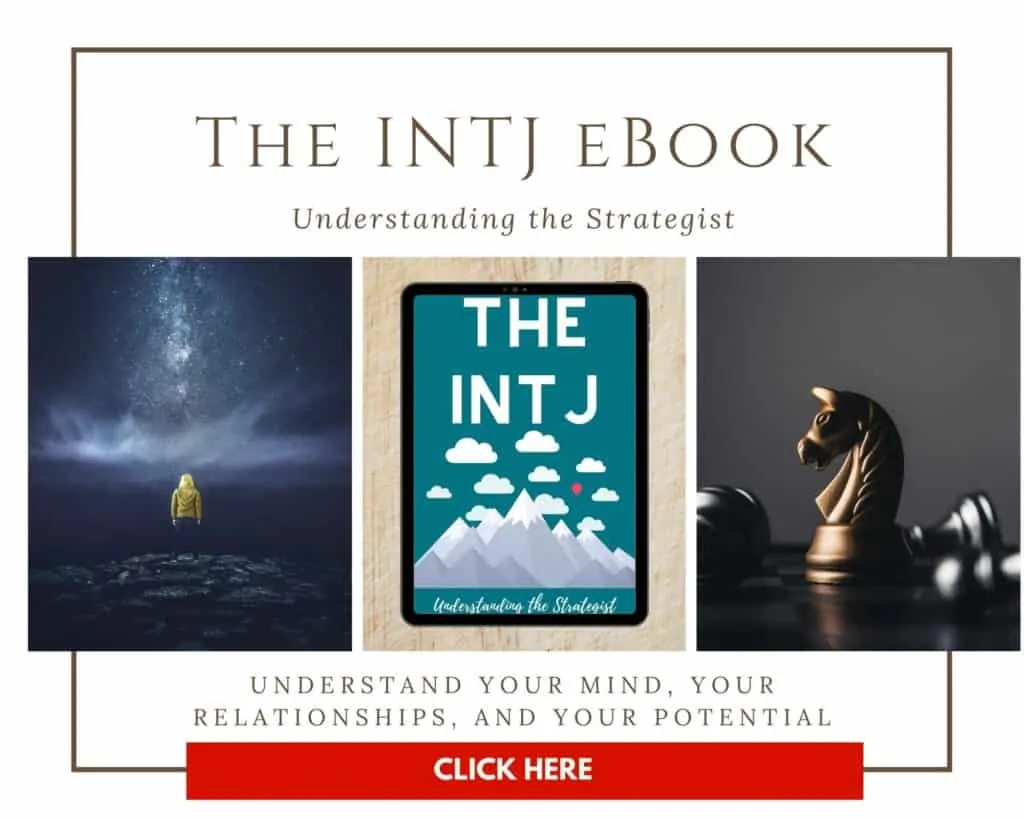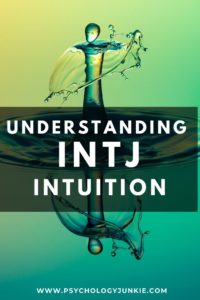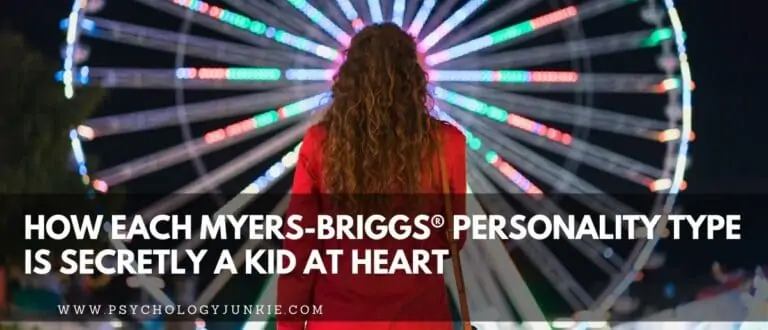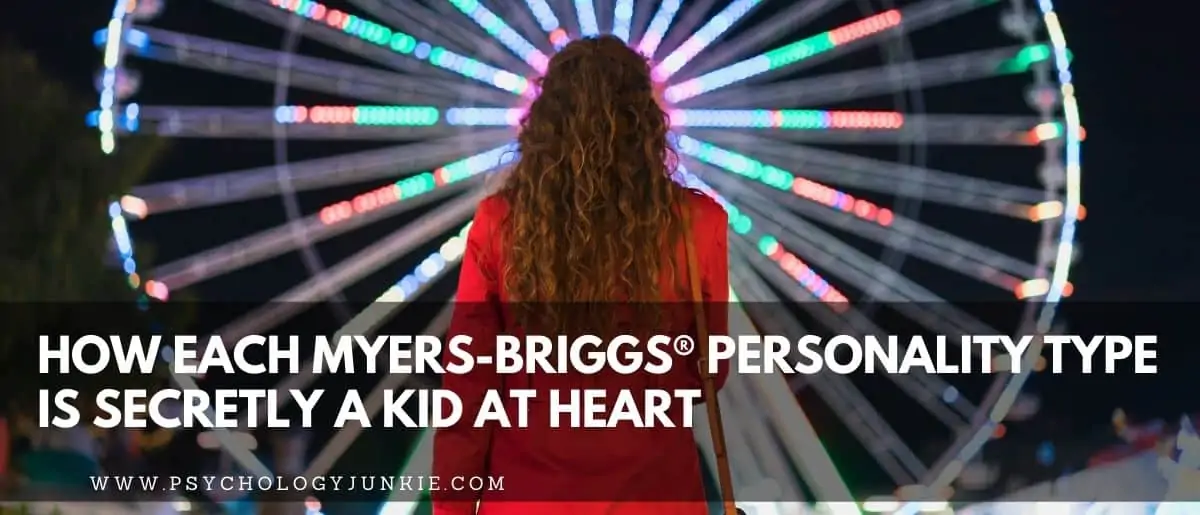Understanding INTJ Intuition
The INTJ, also known as the “Strategist” or “Architect”, is one of the 16 Myers-Briggs® personality types. These insightful types are gifted with a unique ability to see beyond the present and grasp far-reaching patterns. Like most NT types, they are driven by a hunger for knowledge, a desire to strategize, and a knack for spotting long-term ramifications and implications. These are the types who can guess where the last domino will fall, when, and why. They’re also able to rapidly shift perspectives, and grasp underlying meanings where others see only chaos or confusion. Their ability to dive deep into complex challenges and emerge with clear, innovative solutions is something that sets them apart.
Today we’re diving a bit deeper into what makes up the INTJ’s unique brand of Intuition. Let’s get started!

Not sure what your personality type is? Take our in-depth personality questionnaire here. Or you can take the official MBTI® here.
What Does INTJ Stand For?
INTJ stands for Introverted, Intuitive, Thinking, and Judging. In simple terms, this means people who identify as INTJ are usually focused and enjoy spending time alone. They tend to think about the big picture and are drawn towards complex concepts and abstract ideas. They make decisions based on logic and are well-organized, preferring a structured environment.
The Inner Intuitive World of the INTJ:
INTJs are known for their decisiveness, logic, and hunger for mastery. The world outside often sees the Thinking side of the INTJ before they see the Intuitive side. That’s because Thinking is directed outwardly for INTJs, while Intuition is directed inward. While others may see the directive, no-nonsense exterior, there’s a more philosophical, abstract focus on the inside for this type. To the INTJ the world is like a gigantic chessboard; each move is purposeful and aligns with a future goal, every piece, every tactic is in service of the complete mission.
Understanding Introverted Intuition:
Introverted Intuition (Ni) is the dominant function of the INTJ and the INFJ. This function is all about spotting ripple effects, anticipating changes, and reading between the lines. Introverted Intuition finds meaning and connections behind things. It asks “Why is this here? What is this hiding? What does this tell me about the future? How will this play out?”.
One of the best ways to understand Introverted Intuition is to compare it to its opposite; Introverted Sensing. Introverted Sensing is focused primarily on maintaining factual details from the past and learning from them. It’s down-to-earth, practical, and driven by lived experience. Introverted Intuition, in contrast, is focused on connecting impressions or patterns from the present that compose a picture or forecast of what is yet to come. It’s visionary, predictive, and more abstract. It’s less about lived experience and more about patterns, hunches, insights, and epiphanies. INFJs, INTJs, ENFJs, and ENTJs will focus intensely on the future, whereas ISTJs, ISFJs, ESFJs, and ESTJs will hold on more to the past and teachers from the past.
Introverted Intuition is also mysterious and hard to explain in a way that is “concrete.” INTJs, like all Introverted Intuitives, have inner images that take on the meaning of things. An INTJ will more likely speak in metaphor than in a sequential list of experiences.
Let’s look at an example of an antique pocket watch. An individual favoring Introverted Sensing (Si) may look at the watch and recall specific details about its creation, its history, or perhaps its previous owners. They would focus on the tangible past experiences linked to the watch. They may even recall the tactile experience of winding the watch or the specific sound of its ticking.
On the other hand, an individual with a preference for Introverted Intuition (Ni) might view the same pocket watch and envision the future. They may ponder how technology will change the way we measure time, or they may foresee how this antique could influence the design of future timepieces. Conceptually, they might think about how time is a construct and what life would be like if there were no way to measure the time. This doesn’t mean that the INTJ would be talking this process out; most of this process would be internal, being sorted out via Introverted Intuition. Externally, their Thinking side (Extraverted Thinking) would be conscious of time, aware of its significance, and be wondering, “Enough with the analysis, what do we need to do next? What’s our next deadline?”
If you want more clarity on whether you’re an INTJ or an ISTJ, you can check out this post here.
Characteristics of INTJs:
– They are driven by a vision of the future
– They are determined and sometimes stubborn
– They desire to find a new road rather than rely on the tried-and-true technique
– They are intensely individualistic and independent
– They are stimulated by challenges
– They are motivated by inspiration and discontented with routine
– They look for the underlying meaning behind everything
The Neuroscience of Introverted Intuition:
According to Dario Nardi, a UCLA professor and expert in the field of neuroscience, INTJs show a whole-brain pattern when they think. Nardi states that when Ni-types are presented with a problem, they “seek to harness all neocortex regions in order to “realize” an answer. Imagine a troop of blind men trying to identify a secret object by touch. One man feels a trunk and says “Tree”; another detects four legs and says “table”; a third feels tusks and says “boar”. Like the blind men, each region offers a different perspective, and a zen-like synchronous state allows the person to reconcile various perspectives to arrive at a best-fit answer (an elephant).”
INTJs are very single-minded individuals. They prefer to focus on one question or problem at a time, unlike Ne-users (NP personality types). Distractions and multitasking are not their cup of tea, although they can handle it if necessary. Instead, they enjoy working on a single problem without interruptions or external stimulation. Their minds thrive in peace and quiet, where they can envision the future and analyze out how to achieve desired outcomes. This is why they excel in planning and organizing, using their Ni and Extraverted Thinking (Te) to find logical and efficient routes to success.
Is Introverted Intuition Magical or “Psychic”?
Ni-dominant types are known to have a “mystical” quality about them because of the insights they pick up on that most others miss. It may seem like they can see the future, but really there’s a very logical process going on to explain it. INJs have especially sensitive inferior Extraverted Sensing (Se). Se gathers a plethora of information from the outside world in the present moment. Ni subconsciously processes this data, putting it together as one would a 1000-piece puzzle. Ni-users just “put together” this internal puzzle much faster than other types do. Once this process is finished, the INJ will be able to understand or reveal their insight or their “completed puzzle”. It’s especially important for Ni-dominant types to have a distraction-free environment for this process to work to its full extent. Loud noises, bright lights, and lots of commotion can all cloud this natural state for them and cause them stress. The MBTI® Manual says that INTJs “especially abhor confusion, mess, and inefficiency.” These external distractions make it increasingly difficult for the INTJ to focus on their vision and form a strategy.
INTJs and Symbols:
INTJs have a very visual imagination and are greatly influenced by symbols. They have “flashes” of inspiration that direct them in some of their greatest endeavors. These sudden insights may appear out of the blue. Their intuitions and insights often come to them in symbolic images, visions, or stories. Because Introverted Intuition often works subconsciously, many Ni-users have very symbolic dreams or thoughts that seem to permeate their day-to-day life. When they try to explain their intuitive hunches, they will rely on these symbols or metaphors to explain things. You can easily see the difference between an ISTJ and an INTJ because the ISTJ will speak very literally, whereas the INTJ will prefer to speak through metaphor and images. The ISTJ will draw lessons from the past and rely on personal experience, and the INTJ will focus on the future and seek new methods to achieve things.
Some Fun Facts About INTJs:
– INTJs are one of the two types with the highest undergraduate GPA.
– They have the highest GPA among persisters in college.
– Their most important job features involve creativity and originality.
– INTJs are the fourth-highest earners in the US, making an average household income of $71K annually.
What Are Your Thoughts?
What unique experiences have you had with intuition as an INTJ? What have you noticed about INTJs? We’d love to hear your thoughts and insights in the comments!
Find out more about your personality type in our eBooks, Discovering You: Unlocking the Power of Personality Type, The INFJ – Understanding the Mystic, The INTJ – Understanding the Strategist, and The INFP – Understanding the Dreamer. You can also connect with me via Facebook, Instagram, or Twitter!
Sources:
Want to know more about INTJs? Check out these amazing books!
Gifts Differing: Understanding Personality Type
MBTI Manual: A Guide to the Development and Use of the Myers-Briggs Type Indicator, 3rd Edition
Neuroscience of Personality: Brain Savvy Insights for All Types of People
Creative You: Using Your Personality Type to Thrive



















Excellent write-up. I’ve found it frustrating at times to translate Ni to language through Te… that is, in the mind you have a much clearer sense of cognitive processes, connections and eventualities. It’s like a gut feeling about how something will go based on collected experiences from my past. This explains why we move to metaphors to take all of that massive data and compress it down to ideas. To try and add definition to ideas… it becomes messy, because the connection of dots is too complicated to verbalize or articulate. My theory is that this is what leads to the impression that INTJs are arrogant… we skip steps and instead just give people the results we see coming. Sadly, I’ve come to realize that few people want to know the future, particularly, when it’s negative… so even if I’m able to effectively find an abnormality (say suggesting my office move a different direction with our work flow so as to avoid a potential pitfall I envision coming)… even if I’m write I’m later made to feel a downer for having suggested this problem was coming. Almost as if, I willed it to happen. I believe that as INTJs grow older and experience more and more of these kinds of situations, we learn to keep those visions internal, to ourselves… and find subtle ways to navigate, or steer people away from danger and towards efficiency and progress 🙂
How does an INTJ use Introverted Intuition in comparison to an INFJ?
This is a post I wrote about INFJ intuition: https://www.psychologyjunkie.com/2016/07/19/understanding-infj-intuition/ I hope it helps!!
Quite well written. Not too much jargon (some is unavoidable – even promotes asking questions that’ll lead to further understanding) and seems fairly approachable for the uninitiated. An INTJ vs ENTJ comparison might be nice to include. I see some mistyping happening along that axis due to the differences being poorly communicated by many sources. The difference between dominant and auxiliary Ni/Te is certainly an area that could benefit from clarifying insight.
Someone knows why Arnold schwarzenegger is usually descriped as INTJ?
I have a bit the answer… But a trend wants that this type is particularly imaginative. I perceive him rather opportunistic with a highly developed ego and a good intellect (superior) Another tendency wants that a higher IQ implies dominant intuition.
Honestly, at this point someone should develop an App that helps us INTJ. Capture our thoughts and be able to translate it immediately into words. I experience some frustration when I perceive the great quality of my tots and how I can switch from one great idea pattern with much detail in my head but cannot communicate same effectively.
Ignorance is bliss but is bliss ignorant?
Hahaha
Hahaha
Here is a more “fun” alternative: figure it out yourself without relying on somebody else’s work/interpretation.
how would you solve this problem? Clue you are an INTJ
Stay with the details work your way back and the patterns will reform leaving you with the obvious concept of the original thoughts. That way you can see it from the end to the beginning and back giving you differing views.
I don’t get it. I match INTJ fairly strongly and regularly, yet I find it difficult to do entirely singular tasks unless they are production of physical items…but even then, I’d prefer to do more than one exact task at the same time. I failed at high school and succeeded easily in college after I found that running a dozen simultaneous windows with my homework allowed me to accomplish things I wasn’t interested in so much. I like having multiple subjects cued and switching between various studies and work functions on the computer.
Yes an INTJ friend of mine is comfortable juggling many ideas, people, books etc at the same time. She prides herself on this ability.
It says we prefer doing 1 thing at a time but CAN DO MANY THINGS at once if WE WANT TO.
IF you stop smoking weed… even more so (I’m quitting this week).
Go, Invisible Woman, go! ????
Hi Susan,
In my INTJs are often completely misunderstood. Especially in the “real world” and away from their natural domain, the environment of higher education.
Outside of academia most people have never come across an INTJ. So when they do they completely fail to understand the INTJ. Instead of seeing their insight and intuition they are seen as simply dumb, silent and withdrawn. Some ESXX types see this as a weakness and an opportunity to exploit the INTJ. This can lead to some very stressful and unpleasant confrontations. With the INTJ sometimes ending up becoming resentful and distrustful of people in general.
From personal experience I an INTJ and my INTP friend have pretty much withdrawn from public life. Particularly here in America where extroversion is expected and introversion is looked upon as a characture defect.